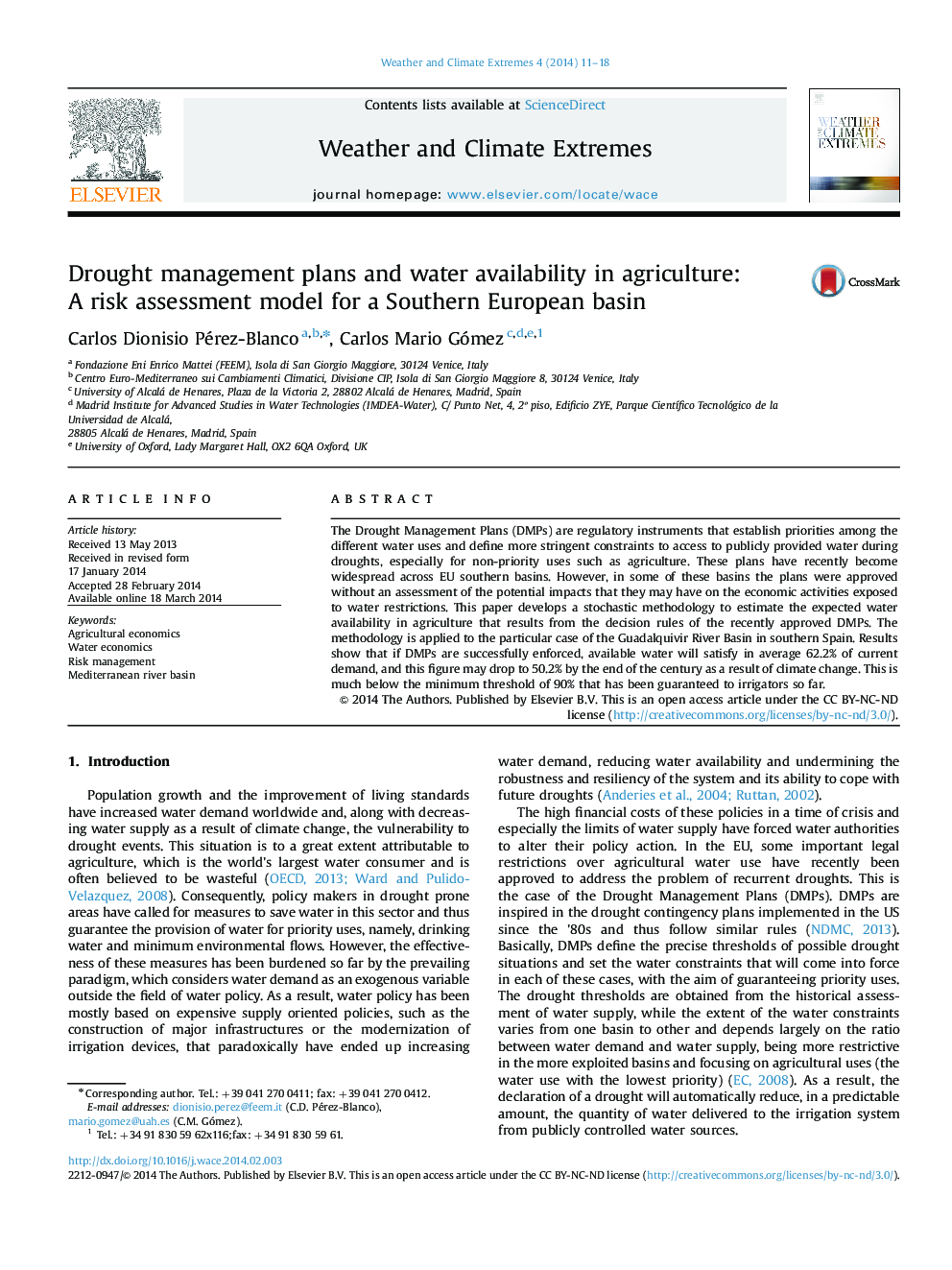| Article ID | Journal | Published Year | Pages | File Type |
|---|---|---|---|---|
| 1066734 | Weather and Climate Extremes | 2014 | 8 Pages |
The Drought Management Plans (DMPs) are regulatory instruments that establish priorities among the different water uses and define more stringent constraints to access to publicly provided water during droughts, especially for non-priority uses such as agriculture. These plans have recently become widespread across EU southern basins. However, in some of these basins the plans were approved without an assessment of the potential impacts that they may have on the economic activities exposed to water restrictions. This paper develops a stochastic methodology to estimate the expected water availability in agriculture that results from the decision rules of the recently approved DMPs. The methodology is applied to the particular case of the Guadalquivir River Basin in southern Spain. Results show that if DMPs are successfully enforced, available water will satisfy in average 62.2% of current demand, and this figure may drop to 50.2% by the end of the century as a result of climate change. This is much below the minimum threshold of 90% that has been guaranteed to irrigators so far.
